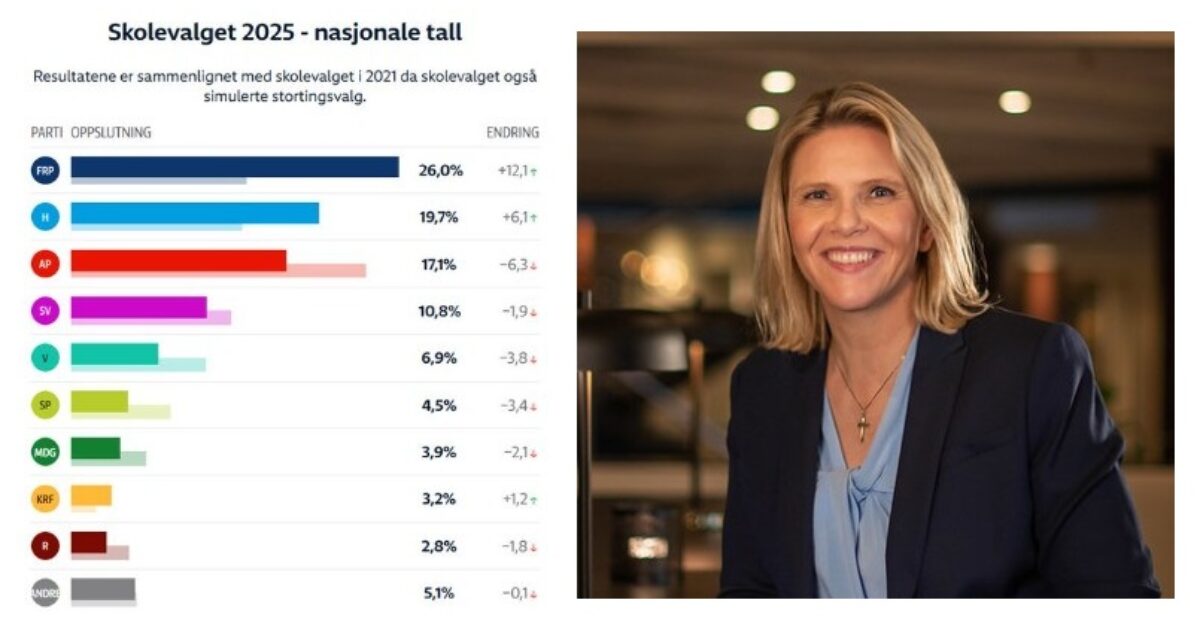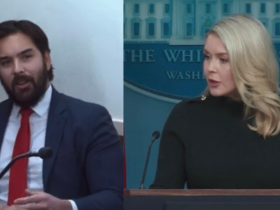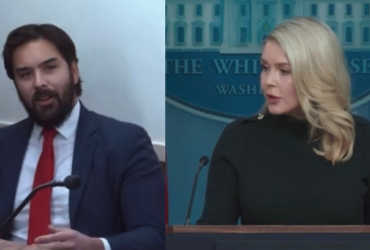Last week, Norway’s Oil Fund announced that it will boycott the American company Caterpillar. The reason? Israel buys Caterpillar equipment and some of it is used by the IDF.
Norway’s $2 trillion sovereign wealth fund excluded heavy-equipment maker Caterpillar based on Israel’s use of its bulldozers to destroy Palestinian property in Gaza and the West Bank https://t.co/LtAVeOxSej
— Bloomberg (@business) August 26, 2025
This boycott didn’t happen in a vacuum—it’s part of a wider political strategy tied directly to Norway’s upcoming elections. And for activists, it’s a test case: can the Oil Fund be turned into a tool to pressure global corporations?
Norwegians understand that this is a mistake. Boycotts risk major financial losses. The Oil Fund was designed as the nation’s savings account for tough times, with a strict mandate to focus on returns and stay away from global political activism.
The Inside Story – Labour’s Need for Muslim Approval
September 8 is election day in Norway. The Norwegian Labour Party, a socialist-leaning party closely tied to unions, was set to lose after four years that left most Norwegians worse off. Their solution? Position themselves as radical anti-Israel to gain votes from Muslim voters and to secure alliances with three smaller, Israel-hating leftist parties.
Labour’s Anti-Israel Track Record
Labour’s strategy is not new. After the October 7 terror attacks, the Labour government blocked the King of Norway from sending an official condolence letter to Israel. And Prime Minister Jonas Gahr Støre was exposed in 2011 for talking directly with Hamas leadership. For many years now, Government-financed media push a hard-left anti-Israel line, to the extent of publishing Hamas press releases.
Already, Labour has made Norway one of Europe’s most hostile environments for Israel at the state level. Still, many Norwegians keep their cool—choosing to stay out of the conflict or openly supporting Israel.
Stoltenberg’s Two Faces
Labour is the party of former NATO chief Jens Stoltenberg. Stoltenberg returned to Norway and joined Labour as a temporary finance minister to help them win the election, leveraging his rumored good relationship with President Trump. In practice, the government is now run by Stoltenberg and Prime Minister Jonas Gahr Støre.
Yet most of Labour’s leadership openly despises MAGA and Trump. In Norway, Stoltenberg is portrayed as someone who can charm Trump with flattery and manipulation. But here’s the double game: after meeting Trump in April, Prime Minister Støre delivered thinly veiled criticism of him in the Norwegian press, undermining any trust Stoltenberg might have built. This is how the two-faced strategy works: Stoltenberg smooth-talks abroad in English, while Støre tears things down at home in Norwegian.
Former NATO Secretary-General Jens Stoltenberg, in a meeting with Pres. Trump and Norwegian Prime Minister Støre on Thursday, said “we need to continue to support Ukraine” financially while still pushing forward to find a solution to the conflict. https://t.co/jil9PcTke3 pic.twitter.com/u6JlYALHzI
— ABC News Politics (@ABCPolitics) April 24, 2025
How Do Small Radical Left Parties Gain Power?
Norway’s election system rewards small parties with extra seats when they cross a 4% threshold, allowing for strategic “gaming” of the system. On the left, there are four parties, three of which are radical. With mainstream media always giving them more than a friendly platform, it’s easy to push two or three of these over the threshold—handing the left a major boost.
The 4% Muslim Vote
Norway’s voting Muslim population is about 4%. That may sound modest compared to France or Sweden (8–10%), but in close elections it’s enough to swing the outcome—and they overwhelmingly vote left.
And this influence doesn’t stop at the ballot box. Large anti-Israel demonstrations in Oslo have grown so aggressive that Jewish citizens are afraid to move freely in the city.
This is Norway. This was once the land of the Norwegian Vikings.
This is Norway today:
Zohran Mamdani recently met on camera with Muslim leaders calling on the 1 million Muslims in New York City to vote for him for Mayor. What’s happened to Norway can easily happen to New York pic.twitter.com/h4dzp72UUT
— Wall Street Apes (@WallStreetApes) June 29, 2025
The Elections – Who Should America Root For?
This year, the key contest is between the left and the right. On the right, the frontrunner is Sylvi Listhaug of the Progress Party. She can be compared to Italy’s Giorgia Meloni: a strong populist voice who previously served in government from 2013–2020.
The Progress Party scored a crushing victory in the after-school elections in Norway recently.
The Progress Party, under Listhaug, faced the 2015 immigration wave head-on. Where much of Europe was overwhelmed, Norway avoided the worst problems thanks to their policies.
Listhaug is also known internationally for standing firm in her Christian identity, even being attacked by “liberal media” for wearing a cross necklace. She never backed down.
Norway’s Biggest Challenges
Immigration from the Third World has stabilized but remains high, and many Norwegians feel threatened by the crime and violence that disproportionately comes from these groups. This aggressive campaign seemingly pulls the political agenda further left—and at the same time, pushed working-class voters to the right.
Meanwhile, Norway’s media is largely state-funded and fails to hold the government accountable, leaving the population poorly informed.
But the biggest issue is economic freedom:
Norway is among the world’s richest countries, yet citizens see more than 60% of their income taken through a mix of income tax, fees, and a 25% sales tax.
Cheap electricity was once a Norwegian hallmark, but prices have skyrocketed (and the government keeps most of the earnings). Inflation is at record highs.
Norwegian companies are taxed so hard they often have leave thecountry to survive.
Interest rates remain high, deepening the squeeze.
Simply put: Norway’s government is getting richer while its people are getting poorer.
The Warning
If the left wins this election, the politicization of the Oil Fund will only deepen. Instead of being a financial safeguard for Norway’s future, it risks becoming a weapon for global activism—starting with Israel but not ending there. Such a shift would not only damage Norway’s economy but also weaken one of Europe’s most important friendships: the longstanding bond between Norway and the United States.
And even if Sylvi Listhaug and the Progress Party succeed in defeating Labour, there will still be enormous work ahead. Years of left-wing rule have entrenched globalist policies deep into Norway’s institutions, media, and bureaucracy. Undoing that grip will require determination, courage, and time. But if Norwegians take that path, the reward could be a stronger nation with a sounder alliance with America.
The post Exclusive: Norway Elections – and the Radical Left’s Infiltration of the Norwegian Oil Fund appeared first on The Gateway Pundit.











